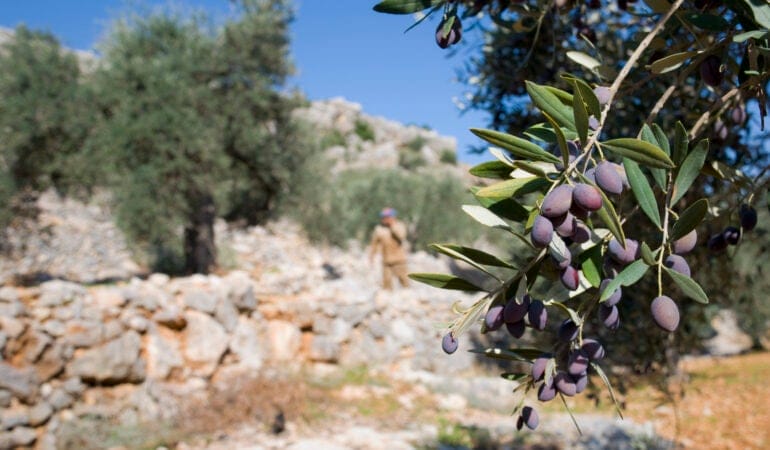
New Research to Explore Scenario Planning and Changing Food Systems
Food systems have always been defined by uncertainty, from unpredictable weather to shifting consumer proclivities. But escalating threats such as climate change, resource depletion, and economic crises are presenting a bounty of new challenges to the global landscapes and systems that grow and provide our food. Over the coming year, six research projects commissioned by the Lincoln Institute will apply scenario planning to anticipate these forces and plan for their effects on various communities around the world, from Wisconsin to the West Bank.
The research projects were identified through a recent request for proposals issued by the Consortium for Scenario Planning, a program of the Lincoln Institute. The RFP invited proposals for research focused on several types of places: regions where external forces (such as climate change, the COVID-19 pandemic, or economic uncertainties) threaten the viability of agriculture; areas that support vital commercial agriculture; areas with a healthy or limited local food supply; communities that wish to encourage the growth of family or small-scale farming; or urban and rural areas that struggle with food accessibility.
“As climate change and economic instability have greater impacts on communities, food systems planning can be a key part of a community’s resilience,” said Heather Hannon, associate director of planning practice and scenario planning at the Lincoln Institute. “Planning for food systems in particular touches on many of the Lincoln Institute’s core initiatives, such as establishing resilient communities, addressing spatial inequality, sustainably managing land and water, and promoting fiscally healthy communities.”
“We are always looking for ways to stretch our scenario planning practice into new areas,” said Ryan Handy, policy analyst at the Lincoln Institute. “We hope this latest RFP cycle on food systems planning will introduce new models that other communities can use to address similar issues.”
The following research projects were selected by the Lincoln Institute:
- Gabriel Cuéllar and Athar Mufreh, assistant professor in practice and lecturer respectively at the University of Minnesota, will use scenario planning to address the complex relationship between land access and food in Palestinian enclaves of the West Bank. Their work will identify models, spatial resources, and access to local markets for food-based businesses.
- Researchers from the Institute for Sustainable Food Systems at Canada’s Kwantlen Polytechnic University will develop a toolkit of best practices in bioregional food systems planning to help communities run scenario planning processes around food uncertainty.
- Researchers from the University of Wisconsin-Madison will develop an adaptable workshop model for food systems and scenario planning. They will partner with local groups to test the model in the agricultural town of Mount Horeb, Wisconsin.
- The National Young Farmers Coalition will write a scenario planning guide as part of its Young Farmer Organizing Handbook. The guide will assist farmers and communities in managing locally led scenario planning exercises to address climate change and other uncertainties.
- Gabriela Rengifo Briceño and Carolina Zegarra Tipismana, researchers based in Lima, Peru, will develop a scenario planning workshop model to address food crises and uncertainty in Lima’s peripheral areas.
- Food Systems Foresight, a U.S.-based consulting firm, will run two scenario workshops, one in the Hudson Valley of New York and the other in Cape Town, South Africa, to address food systems planning and uncertainty.
All projects will be completed by June 2023. The Lincoln Institute issues an annual RFP for scenario planning projects; learn more about the projects selected in 2021, which focused on using scenario planning to advance climate strategies in communities, and those selected in 2020, which focused on equity and low-growth scenarios.
To learn more about all Lincoln Institute RFPs, fellowships, and research opportunities, visit the research and data section of our website.
Image: A farmer working in an olive grove in Aboud, a Palestinian village in the West Bank. Credit: Joel Carillet via E+/Getty Images.
